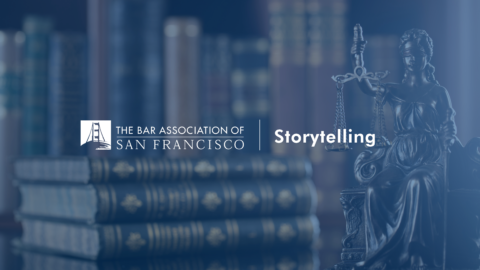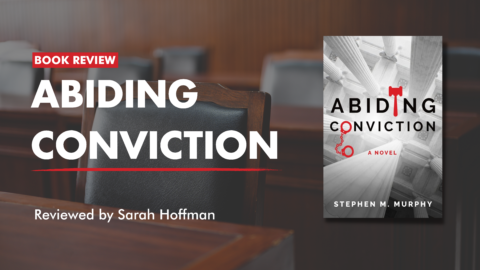As we continue to confront the unprecedented challenges of COVID-19, I cannot begin this column without expressing how proud I am of the Bar Association of San Francisco (BASF) and the Justice and Diversity Center (JDC). I have always been proud to be part of these organizations, but never more so than now. BASF and JDC have not faded into the background in this crisis.
To the contrary, through hard work, creativity, and a sense of duty and desire to help, BASF and JDC staff have adapted to working remotely and pivoted to providing critical information and resources for practicing law in the Bay Area in the time of COVID-19. And we continue to provide representation to those in need of JDC’s pro bono legal services.
We have grown stronger, not weaker, in the face of these challenges. Our members have noticed. Our Executive Director and all of the staff and volunteers who work so hard appreciate your positive feedback. Please keep it coming. Please also have in mind that we continue to need your support, including financial support, to ensure our continued success.
This issue of San Francisco Attorney focuses on what we are learning from the coronavirus crisis—a crisis that has forced all of us to examine not only how we serve our clients and communities, but also how we live, work, and connect with each other. In some lines of work, sheltering in place has meant unemployment and shuttering of businesses, some permanently. But by and large, the legal profession is learning how to operate remotely and connect virtually. Indeed, we are quickly becoming experts at remote operations.
The realization that we can largely run our profession remotely is a relief when we have no other choice. But when we do have another choice, what will we choose? And what are the implications of those choices?
Now seems like an appropriate time to ask what we should do with our new remote prowess. Recognizing that everyone will have perspectives based on factors like personality, job responsibilities, home life, and commute options, I offer my perspective: I hope to see things return to the way they used to be.
How can we continue to work remotely and not lose the things that make practicing law in San Francisco such a rewarding experience? Those of us who have worked here for many years know that we are a tight-knit community, despite our numbers. It’s tough to walk outside and not run into a fellow lawyer on the street. San Francisco is unique among American cities in having a large legal community located in a small and dense financial center where everyone walks to get where they need to go during the day—and not in tunnels or skywalks because the weather is conducive to walking year-round. Meeting colleagues and clients for lunch or coffee is easy, and happy hour is just across the street. I’m not ready to lose these things.
Proximity creates connections and builds relationships. I believe our sense of community as a profession—the very character of who we are as San Francisco lawyers—derives from the physical attributes of this great city. How much of our passion for the law will we lose from staying at home? Can we remain a community of lawyers dedicated to equal justice and service to those in need? The moments I have been most inspired by my fellow attorneys over the years have been at gatherings where I could hear extraordinary speakers with great ideas and then talk face-to-face with others who were also inspired. We need our events. Ask anyone who is trying to plan an alternative event now, and they will tell you there is no substitute for meeting in person.
And who loses the most when we work remotely? I think of the newest members of our profession and how important it is that they have access to those who will teach them the practice of law, impart on them the values and standards of our profession, and lead them by example. I think of how hobbled they are in building the social and professional networks that will expand their experiences and opportunities. Many of these folks are new to San Francisco like I was when I started my career here in 1996. I knew almost no one. My social and professional network developed largely because of the ‘small world’ experiences that are so much of what San Francisco is about. These relationships serve as the foundation of my professional well-being.
There is something enriching and expansive about working together in person, even working in proximity to each other.
Certainly, we do not face the prospect of empty buildings and empty streets. Offices will reopen and many of us will return. Those of us who need to work remotely for personal reasons will, and employers may allow remote working as a matter of convenience. Business models may change, floorplans may change, employers may see opportunities to cut expenses for office space—second only to salaries in impact on the bottom line. But in the process of making decisions about remote operations, when avoiding a virus is not the principal consideration, I hope we will weigh not just personal convenience and the bottom line, but also the social and cultural costs of losing togetherness.
What if we are given the choice to work from home so long as it is consistent with our obligations, like court appearances? I worry that without further guidance from employers, the impact may still be significantly negative. Seeing your mentors and other colleagues in the office on a daily basis is something most of us have taken for granted. If those folks may or may not be there on any given day, if the greatest contributors to mentorship and a positive work environment choose to work from home regularly, the cost to others will be great. If our colleagues come to work just one or two days a week, is that a day when they are looking to talk and mentor? Or is it crunch time because days in the office are so rare?
We are a social profession, one that thrives on interaction and the exchange of ideas—in kitchens and conference rooms and on walks to get coffee. As work-from-home policies evolve, let’s be thoughtful, not just expedient.
Don’t get me wrong. I love my husband and I love my dog, and it’s been just terrific getting to spend every waking hour of each and every day with them for three solid months. But now I’m ready to return—to roam the halls of our offices and the streets of San Francisco. I hope to see you there soon.
Stuart Plunkett is a partner at Alston & Bird and the 2020 President of the Bar Association of San Francisco and the Justice & Diversity Center.



